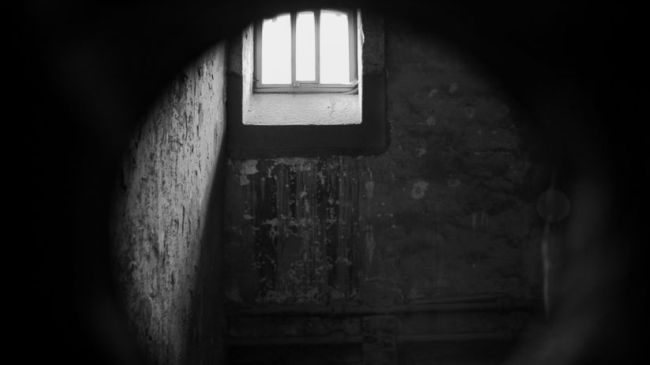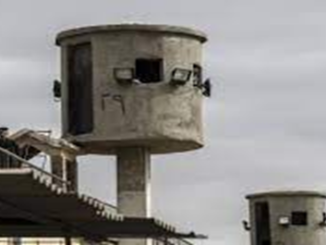
The Egyptian Observatory for Rights and Freedoms has documented that the number of cancer patients in Egypt’s prisons since the military coup in June 2013, is estimated at 790 prisoners, distributed in various custody places in all governorates. Statistics showed that 150 of the detainees suffer from lung cancer patients, 50 from colon cancer, 90 from prostate cancers, 200 from leukemia (blood cancer), whereas 200 prisoners suffer from lymphatic nodes cancer and 100 from pancreas cancer, said Al-Arabi Al-Jadeed in a report titled: “Systematic Killing – Cancer Eats Away at Bodies of Political Detainees in Egypt”.
According to the Egyptian Observatory, an Egyptian rights organization, “Half of the cancer patients among prisoners discovered their illness while they were in custody while the others suffered from the disease before they were imprisoned. “
In addition, the Arab Organization for Human Rights said that “the number of those who have died of cancer in prisons was 32 prisoners among 491 who died of medical negligence inside Egypt’s prisons since July 2013.”
The rights organization referred the deaths among cancer patients to the fact that the prison administration does not provide the necessary medical care to patients. In addition, the law of Egypt’s prisons gives the commissioner of the prison and the interior ministry officers the upper hand in the medical care issue, which means that the doctor’s decision (even a doctor working in prison) is non-obligatory (despite the recent amendments that gave the doctor the right to take urgent actions in case of extreme emergencies) but the prison regulations still violate the international norms and impede the delivery of medical care to cancer patients as well as other patients,” according to the Human Rights Watch as reported by Al-Arabi al-Jadeed.
Human Rights Watch has recently stated in its report on the Scorpion Prison, titled: “We are in tombs” that studied the cases of detainees in Scorpion Prison (one of Tora’s prisons) that the basic rules for treating prisoners issued by the United Nations have affirmed providing medical care to all prisoners regardless of their illness which infers the necessity of providing more medical care to patients who are sick with more dangerous disease as cancer.
Among the cases that were documented by the Human Rights Monitor in December 2015 was the case of the detainee Mansour Farouk Mohamed, a cancer patient in his fifties who was neglected by the prison’s administration despite his old age. The prison administration refused to allow the access of painkillers to him or to send him to a doctor. They also refused to release him for his health situation though his family presented tens of appeals which were all rejected. Mansour had undergone a surgery to remove the right part of his breast and part of his stomach before he was arrested, so he was also in need of weekly radiotherapy sessions along with painkillers that were all banned by the prison administration.
According to a source from his family, some of the medicines were successfully smuggled to his cellar after paying cash bribes to the police officers at Borg Al-Arab prison, which was described by human rights organizations as “a new violation of Mansour’s humanity and rights.”
Last May, the National Council for Human Rights, a governmental human rights organization, admitted that there are medical care problems in prisons. As revealed by the Council in an official report, “Some sick prisoners were forced to undergo hunger strikes because of the authorities’ refusal to apply medical examination outside the prison, which led to more health complications.”
Despite all these documented records according to various rights groups, Major General Hassan al-Suhagy, Interior minister’s assistant and the head of the prisons’ department, refused all the accusations against the department from the families or the human rights organizations of neglecting the medical treatment of the cancer patients.
Al-Suhagy insisted that “the cancer patients are well treated, and have the best medical care in Egypt’s prisons.” He also added that all the claims saying that cancer patients die inside their cells are lies and fabrications as the prisons ‘department strategy is to provide care for cancer patients and chronic diseases patients as well as providing provided medical care to all prisoners despite their different affiliations, stressing that the deaths inside the prisons have nothing to do with medical negligence or the failure to provide treatment.”
In this context, the Human Rights Watch believes that the patients’ families have the right to sue the government. In its latest report on Scorpion Prison released in September 2016 the rights group “documented the failure of the public prosecutor to oversee the prison and make sure that prisoners acquire their rights.” It continued,” They did not make any serious investigation in all the death cases that occurred in the prison. In addition, in some cases, the families were subjected to threats and blackmail if they tried to accuse the ministry of interior of obstinacy in providing medical care to their dead beloved. ”
The organization also stressed that some of the families did not know the details of their relatives’ suffering from cancer except after many months, although the prison administration was aware of this. They also refused to provide the families with the patients’ medical documents and tests. It was also difficult for the prisoners’families to meet their beloved or talk to the prison’s doctors.”
Joe Stork -the Deputy Director for the Middle East and North Africa at Human Rights Watch- said about scorpion prison, “Scorpion Prison sits at the end of the state’s repressive pipeline, ensuring that political opponents are left with no voice and no hope, “He added, “Its purpose seems to be little more than a place to throw government critics and forget them.” In a press release, Stork added, “Egypt’s prisons are full of opposition, and eliminating the abuses behind the Scorpion Prison’s wall is a minor step toward improving the non-humanitarian conditions of prisons in that country.”



